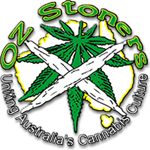The Hon. AMANDA FAZIO [3.05 p.m.]: Today I inform the House about an organisation that provides a realistic approach to drug law reform. Law Enforcement Against Prohibition [LEAP] Australia was formed in late 2010 by a small group of current and retired law enforcement officers who know that current drug policies in Australia, and internationally, are not working and are impacting on society as a whole. Law Enforcement Against Prohibition Australia is focused on educating the public and policymakers on the harms that current policies are causing and it is heightening the awareness of alternate ways in which to deal with drug abuse and organised crime. All members of the Law Enforcement Against Prohibition Australia Board possess extensive drug and alcohol sector experience.
http://www.parliament.nsw.gov.auLaw Enforcement Against Prohibition Australia does not promote the use of drugs and is deeply concerned about the extent of drug abuse worldwide. It is concerned also about the destructive impact of violent drug gangs and cartels everywhere in the world. Neither problem is remedied by the current policy of drug prohibition. Drug abuse and gang violence flourish in a drug-prohibition environment, just as they did during alcohol prohibition. Law Enforcement Against Prohibition advocates the elimination of the policy of drug prohibition and its replacement by regulated policies based around appropriate restrictions on drug sales.
Drug abuse is a health problem, and drug use should be regulated and subject to restrictions that are similar to those currently applying to alcohol and tobacco. Law Enforcement Against Prohibition Australia recognises that even in a post-prohibition world, all drugs can cause harm and create a potential for addiction, and that this requires appropriate regulation and control. The group believes that all persons suffering from drug abuse afflictions and addiction should be provided with a variety of help, including safe usage education, drug treatment and drug maintenance programs.
Law Enforcement Against Prohibition Australia will support independent research to demonstrate that an end to drug prohibition will control criminal justice expenditures, reduce disease and uptake, and that a fraction of those savings would be more than sufficient to pay for expanded addiction services. Law Enforcement Against Prohibition Australia believes that adult drug use, however dangerous, is a matter of personal freedom as long as it does not impinge on the freedom or safety of others. Adult drug abuse is a health problem and not a law-enforcement matter, provided that the abuse does not harm other people or the property of others. Patrons of Law Enforcement Against Prohibition Australia include the Hon. Michael Kirby, AC, KCMG, Dr Alex Wodak, AM, Director, Alcohol and Drug Service, St. Vincent's Hospital, Bernadette McSherry and Nicholas Cowdrey, QC. On 16 June 2011, the fortieth anniversary of President Richard Nixon's "war on drugs", former President Jimmy Carter, who was the 2002 winner of the Nobel Peace Prize, commented in the New York Times:
- In an extraordinary new initiative announced earlier this month, the Global Commission on Drug Policy has made some courageous and profoundly important recommendations in a report on how to bring more effective control over the illicit drug trade. The commission includes the former presidents or prime ministers of five countries, a former secretary general of the United Nations, human rights leaders, and business and government leaders, including Richard Branson, George P. Shultz and Paul A. Volcker. The report describes the total failure of the present global antidrug effort, and in particular America's "war on drugs", which was declared 40 years ago today. It notes that the global consumption of opiates has increased 34.5 percent, cocaine 27 percent and cannabis 8.5 percent from 1998 to 2008. Its primary recommendations are to substitute treatment for imprisonment for people who use drugs but do no harm to others, and to concentrate more coordinated international effort on combating violent criminal organizations rather than nonviolent, low-level offenders.
Currently Law Enforcement Against Prohibition Australia is conducting two campaigns. The first is to regulate rather than prohibit synthetic cannabis. New Zealand has successfully implemented the regulation of synthetic cannabis; we should do likewise. Secondly, they are demanding action to allow the use of cannabis by people with a medical certificate. Research has proven that cannabis has anti-cancer properties, and it is time that governments took this issue seriously.
Currently 19 states of the United States of America allow the use of cannabis for medicinal purposes. In some states the conditions and symptoms eligible are cancer, chronic pain, epilepsy and other conditions characterised by spasms, chronic glaucoma, HIV or AIDS, multiple sclerosis and nausea. I know of a number of cancer suffers who have benefitted from the use of medical cannabis for pain relief, suppressing nausea and appetite stimulation. I support both campaigns.
In Australia in 1985 the Federal and State governments adopted a national drug strategy, which included a pragmatic mixture of prohibition and a stated objective of harm reduction. Harm reduction has been an official part of Australian drugs policy ever since, although most resources by far are devoted to policing and to border patrol attempts at interdiction or supply reduction. Fewer resources are made available for health treatment and drug rehabilitation programs or for preventative public health programs, such as needle exchanges. Australia maintains an extremely low rate of HIV infection among injecting drug users compared to infection rates of 60 per cent or more among injecting drug users in some American cities where needle exchange remains illegal.
I strongly support the campaign by the Law Enforcement Against Prohibition group for elimination of the policy of drug prohibition, which should be replaced by regulated policies based around appropriate restrictions on drug sales. I congratulate those responsible for establishing Law Enforcement Against Prohibition [LEAP] Australia, which builds on the good work that Law Enforcement Against Prohibition [LEAP] has been doing in the United States of America since 2002.












No comments:
Post a Comment